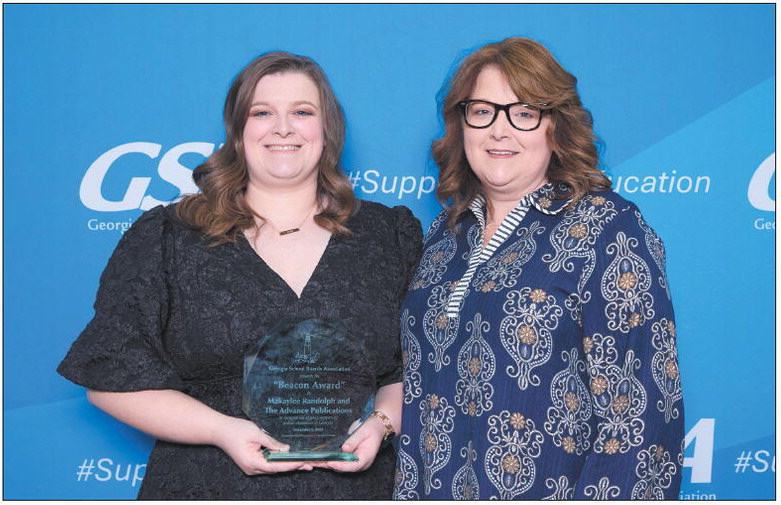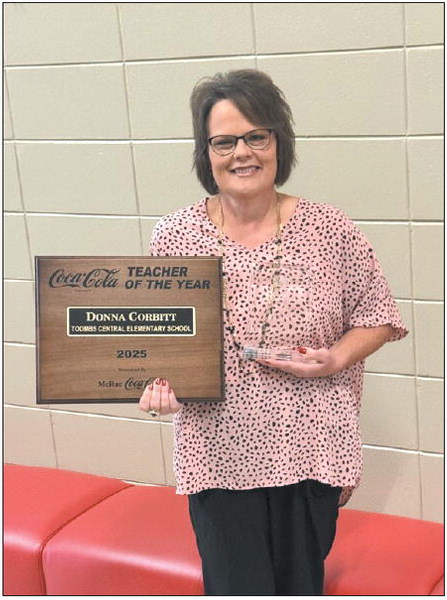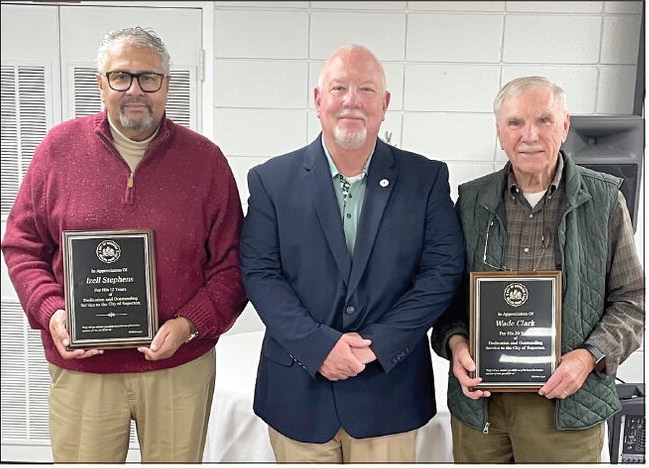Meet Montgomery County’s New School Superintendent Stan Rentz
mrandolphadvance@gmail.com
Montgomery County School Superintendent Dr. Stan Rentz may be new to the Montgomery County area, but he is no stranger to the education profession. Rentz discussed his own educational philosophy and perspective in a conversation one month into his career at Montgomery County Schools.
“I came from a small community, but Montgomery County is so much smaller than I thought it was,” he noted. “I love that though because of the close relationships that are built here. Being superintendent, I know that so much of my work is growing relationships and getting people to work together on the same page. We have great community support and we have a Board of Education that really cares about kids and the right things.”
He continued, “I’m pleasantly surprised. The community has been more than I can imagine. People are truly proud to be from Montgomery County and a part of the school system.”
Rentz revealed that upon his arrival at the school system, he issued a survey to all teachers and staff members that questioned their thoughts on the school system. According to Rentz, replies quickly revealed a unanimous positive response about being connected with the school and the community.
Credit for the current success of the school was given to former Superintendent Hugh Kight and interim Superintendent Mark Davidson as Rentz praised the pair for their work. “There’s a lot of great things happening here, and I just want to continue the work that Mr. Kight and Dr. Davidson put into place during their time at the school,” he remarked, adding, “We’re different in the way we do things, and that’s OK, but there has been a culture that has been great to inherit. I just want to keep moving and get that culture even better.”
To accomplish this continued improvement, Rentz hopes to receive information and input from those who know the area best. “None of us is as smart as all of us,” he emphasized. “I want to get the best information for decision-making, which requires knowledge from those with both local and educational experience and knowledge. We have been blessed with many individuals with many different backgrounds and experiences, and we should use that to our benefit. “ He noted, “I want this to be a place where students and teachers want to be, and where students, teachers, and administrators feel supported. I think you’re always moving — either a little bit backward or a little bit forward —but never standing still. We just need to keep moving to get Montgomery County where people want to be, even if they have previously left the school.”
Rentz is equipped to accomplish this mission through his extensive educational background. While he began working in communications through television and radio stations, Rentz cultivated his love for kids through his coaching of youth sports. In Summer 1989, he began working for a Temporary Alternative Placement School (TAPS) while picking up some education classes from his alma mater, Georgia Southern University. He remained unsure of his desire to pursue a career in public education as he began working in Johnson County Schools that same year. According to Rentz, it was not until 1990 when he returned to his hometown school system to teach Georgia history and communication that he became passionate about a career in education. “I fell in love with making a difference in the lives of kids,” he commented. “I realized they just need encouragement, support, and someone to tell them that they can be successful.”
Rentz continued, “No one is good at everything. In kids, if you can find that one thing — that pushes that button and they realize ‘you know what, I’m good at this’— I think that is where the magic starts. Never giving up on a kid and helping them find success in something is key in education.” He provided an example of this through the discussion of the school’s recent 100% graduation rate. Rentz affirmed that this achievement begins more through the work done at the elementary school rather than the middle or high school. “If we lose the students at elementary school, if they’re told they’ve failed or they are not any good, that’s when you get your dropouts,” he noted.
Rentz commended the teachers at all levels of the Montgomery County School System for this achievement and their team effort at providing students with the best possible education.
To him, the best possible education isn’t merely achieved when all students memorize answers for a test, but when they are developed to be productive citizens of society. “I want to put focus on not only helping students get a diploma, but preparing them for life,” he said. “I have realized a lot of what I learned at home as a child has now fallen to schools in today’s society.”
These lessons that are now a part of school curriculum rather than home include personal finance, cooking, and job interviews. Rentz has crafted his own educational perspective with this new development in curriculum in mind. “When I talk about our jobs as professional educators and the diploma and the curriculum, that’s all very, very important,” he reassured. “But I want to go even beyond that and think about productive citizens. We want to graduate students, who, when they walk out with a diploma in their hands, are ready to be adults.”
Rentz also shared that education is about helping every student find their own success, rather than what others perceive as success. “The kids get to define what success is for themselves. When I think of myself being successful, I have my own ideas. I think every person has a different definition of what success is.”
According to Rentz, to accomplish the best possible education, it is critical to recognize that people learn differently and have different goals. While an educational foundation is important, students should be involved in determining their future. “After all, everyone needs to find a job that they feel good about.”
He emphasized the application of this concept throughout the opportunities provided at the school through the Southeastern Early College and Career Academy (SECCA), electives, and extracurricular options students may participate in. Rentz praised SECCA, as he commented, “One of the things I love about this area is the way that four superintendents from four school systems— Montgomery, Treutlen, Toombs, and Vidalia—work together closely to benefit students in the area.”
He added, “It’s so rare to see such a partnership and it is so wonderful for our kids. It gives them opportunities that they would not have from school alone because of being in such a small school system.”
Rentz also supports student involvement in diverse extracurricular activities. “I have been impressed with how many of our kids are involved with something outside of academics,” he detailed. “It’s so refreshing to see that. I love seeing our kids compete in what they’re passionate about, not just in sports, but through Future Farmers of America, Literary, Band, etc.”
Overall, Rentz enjoys the small school system because of the close bond that administration and staff are able to build with the students. “You really get to know your kids,” he explained. “The smaller a school is, the more involved you can be and the better the relationships.”
It is these close relationships that give students the most effective and individualized education possible, as teachers and administrators learn the behaviors and tendencies of the students. “People learn in so many different ways, you just have to find what works,” he remarked.
Rentz recounted a past experience with a student who failed a traditional assessment but proved he understood the information through a discussion with classmates. Rentz summarized what he learned through this experience. “We should be very careful before we say someone did not learn anything based on a single assessment. There are plenty of ways to assess knowledge besides the traditional test.”
When asked how this philosophy translates into an age of standardized testing, Rentz outlined the purpose of this testing according to his perspective. “Standardized testing is more of an autopsy — it makes the teacher aware of the good job they are doing or the need to rethink methods and activities,” he said.
Rentz concluded, “I hope to be here many years, and do the best possible job I can for this wonderful community in that time.”
“No one is good at everything. In kids, if you can find that one thing — that pushes the button and they realize ‘you know what, I’m good at this’ — I think that is where the magic starts. Never giving up on a kid and helping them find success in something is key in education.”
— Dr. Stan Rentz





